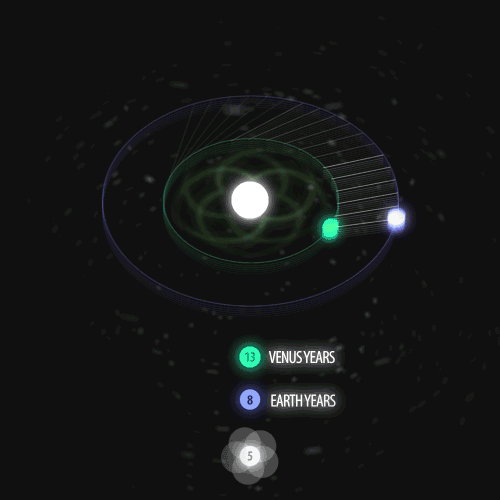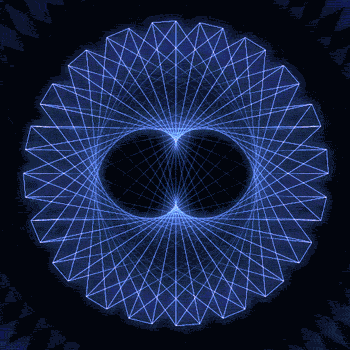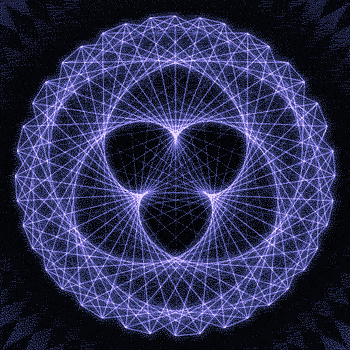Saturn In Different Wavelengths.





Saturn in different wavelengths.
1) Ultraviolet
2) Infrared
3) Infrared
4) X-Ray and Optical
5) Optical
More Posts from Sciencephysics4all-blog and Others

Το Αιγαίο από το διάστημα! Το φαινόμενο sunglint στο Αιγαίο από το διαστημοσυσκευή MODIS της NASA via NASA Earth. Διαβάστε περισσότερα εδώ: https://goo.gl/LqUgJJ

- Excuse me. For the fractal geometry? - At the end of the corridor.

Quantum phenomenon in neutron star (video) https://goo.gl/OcDlcz
Τεστ γνώσεων!
Kirk vs. Spock: NASA Trivia Time!
Star Trek has inspired generations of NASA employees to boldly go exploring strange new worlds and develop the technologies for making science fiction become science reality. We recently caught up with Star Trek Beyond actors Chris Pine (Kirk) and Zachary Quinto (Spock) and quizzed them on some NASA trivia. Before you take a look at their answers (video at bottom of post), take a stab at answering them yourself! See how well you do:

1. What does the first “A” in NASA stand for? A) Adventure B) Aeronautics
2. On July 4 this year, we sent a spacecraft into orbit around what planet? A) Jupiter B) Pluto
3. What do scientists call a planet that orbits a star outside our solar system? A) Exoplanet B) Nebula
4. Although it never flew in space, what was the name of the first space shuttle? A) Discovery B) Enterprise
5. What is a light-year a measurement of? A) Time B) Distance
6. When looking for habitable worlds around other stars, we want to find planets that are what? A) Goldilocks zone planets B) Class M Planets
7. Olympus Mons is the largest known volcano in our solar system. What planet is it on? A) Mars B) Earth
8. Which NASA satellite made an appearance in Star Trek the Motion Picture? A) Voyager B) Galileo
9. Who was the first American woman in space? A) Sally Ride B) Janice Lester
10. While developing life support for Mars missions, what NASA Spinoff was developed? A) Enriched baby food B) Anti-gravity boots
11. What technology makes replication of spare parts a reality on the International Space Station? A) Closed-Loop System B) 3-D Printer
12. What two companies are contracted by NASA to carry astronauts to and from the space station? A) Boeing and SpaceX B) Amazon and Virgin Galactic
ANSWERS: 1:B, 2:A, 3:A, 4:B, 5:B, 6:A, 7:A, 8:A, 9:A, 10:A, 11:B, 12:A
Now that you’ve tested your own space knowledge, find out how Zachary and Chris did at NASA Trivia:
Learn more about NASA + Star Trek at: http://www.nasa.gov/startrek
Make sure to follow us on Tumblr for your regular dose of space: http://nasa.tumblr.com

Η κούπα του Πυθαγόρα Γιατί αδειάζει όλο το ποτήρι όταν ξεπεράσεις το όριο; Η απάντηση εδώ: http://www.sciencephysics4all.com/902rhothetarhoalpha1/i-koupa-tou-pythagora
Five Things to Know About NASA Astronaut Kate Rubins

Among the newest crew on the International Space Station is U.S. astronaut Kate Rubins, who will assume the role of Flight Engineer for Expeditions 48 and 49. Here are five things you should know about her:
1. She was chosen from a pool of over 3,500 applicants to receive a spot on our 2009 astronaut training class.

After being selected, Rubins spent years training at Johnson Space Center to become an astronaut. She learned how to use the complex station systems, perform spacewalks, exercise in space and more. Some training even utilized virtual reality.
2. She has a degree in cancer biology.

After earning a Bachelor of Science degree in Molecular Biology from the University of California, San Diego in 1999, Rubins went on to receive a doctorate in Cancer Biology from Stanford University Medical School Biochemistry Department and Microbiology and Immunology Department in 2005. In other words, she’s extremely smart.
3. Her research has benefited humanity.

Rubins helped to create therapies for Ebola and Lassa viruses by conducting research collaboratively with the U.S. Army. She also aided development of the first smallpox infection model with the U.S. Army Medical Research Institute of Infectious Diseases and the Centers for Disease Control and Prevention. NBD. It will be exciting to see the research come out of a mission with a world-class scientist using a world-class, out-of-this-world laboratory!
4. She is scheduled to be the first person to sequence DNA in space.

During her time at the space station, Rubins will participate in several science experiments. Along with physical science, Earth and space science and technology development work, she will conduct biological and human research investigations. Research into sequencing the first genome in microgravity and how the human body’s bone mass and cardiovascular systems are changed by living in space are just two examples of the many experiments in which Rubins may take part.
5. In her spare time, she enjoys scuba diving and triathlons…among other things.

Rubins was on the Stanford Triathlon team, and also races sprint and Olympic distance. She is involved with health care/medical supply delivery to Africa and started a non-profit organization to bring supplies to Congo. Her recent pursuits involve flying airplanes and jumping out of them – not simultaneously.

Rubins is scheduled to arrive at the International Space Station at 12:12 a.m. Saturday, July 9. After her launch on Wednesday, July 6, the three crew members traveled 2 days before docking to the space station’s Rassvet module.
Watch live coverage of docking and their welcoming starting at 11:30 p.m. EDT Friday, July 8 on NASA Television.
Make sure to follow us on Tumblr for your regular dose of space: http://nasa.tumblr.com
The history of Hubble - Η ιστορία του διαστημικού τηλεσκοπίου που έχει γράψει ιστορία με τις φωτογραφίες του, Hubble.
Can You #SpotHubble?
Hey Tumblr! We’re Inviting You to #SpotHubble

Since its launch in 1990, the Hubble Space Telescope has sent back mind-blowing images that not only changed our understanding of our universe, but also changed where we see our universe.

Hubble is more than a science instrument; it’s a cultural phenomenon! Take a moment to think about where you’ve seen the Hubble Space Telescope or Hubble images in your daily life.

Maybe you walk by a mural inspired by Hubble images everyday on your way to work.

Perhaps you’ve even created art based on Hubble images.

We want to see the Hubble impact in your life! Share your photos with us on Instagram, Twitter, Flickr and Facebook. If a #SpotHubble image catches our eye, we may share your post on our NASA Hubble social media accounts.

Here’s how to #SpotHubble!
There are four social media platforms that you can use to submit your work:
Flickr: Submit your photos to the Spot Hubble Flickr Group
Instagram: Use the Instagram app to upload your photo, and in the description include #SpotHubble and #NASAGoddard
Twitter: Share your image on Twitter and include #SpotHubble in the tweet
Facebook: Share your image on Facebook and include #SpotHubble in the post
Please note, submissions are subject to certain terms and conditions.
Make sure to follow us on Tumblr for your regular dose of space: http://nasa.tumblr.com





Fibonacci you crazy bastard….
As seen in the solar system (by no ridiculous coincidence), Earth orbits the Sun 8 times in the same period that Venus orbits the Sun 13 times! Drawing a line between Earth & Venus every week results in a spectacular FIVE side symmetry!!
Lets bring up those Fibonacci numbers again: 1, 1, 2, 3, 5, 8, 13, 21, 34..
So if we imagine planets with Fibonacci orbits, do they create Fibonacci symmetries?!
You bet!! Depicted here is a:
2 sided symmetry (5 orbits x 3 orbits)
3 sided symmetry (8 orbits x 5 orbits)
5 sided symmetry (13 orbits x 8 orbits) - like Earth & Venus
8 sided symmetry (21 orbits x 13 orbits)
I wonder if relationships like this exist somewhere in the universe….
Read the Book | Follow | Hi-Res -2- -3- -5- -8-
-
 fractiousheart reblogged this · 5 years ago
fractiousheart reblogged this · 5 years ago -
 sinnephi liked this · 6 years ago
sinnephi liked this · 6 years ago -
 aimlessandroiddreamer reblogged this · 6 years ago
aimlessandroiddreamer reblogged this · 6 years ago -
 losteyesofthesun liked this · 6 years ago
losteyesofthesun liked this · 6 years ago -
 artemisiawormwood liked this · 7 years ago
artemisiawormwood liked this · 7 years ago -
 mrincredibleamericanbastard reblogged this · 7 years ago
mrincredibleamericanbastard reblogged this · 7 years ago -
 bleachboys reblogged this · 7 years ago
bleachboys reblogged this · 7 years ago -
 happythoughthall reblogged this · 7 years ago
happythoughthall reblogged this · 7 years ago -
 happythoughthall liked this · 7 years ago
happythoughthall liked this · 7 years ago -
 wastemeagain liked this · 7 years ago
wastemeagain liked this · 7 years ago -
 astral-doll liked this · 7 years ago
astral-doll liked this · 7 years ago -
 allmyparkliofe liked this · 7 years ago
allmyparkliofe liked this · 7 years ago -
 tiahel-blog liked this · 7 years ago
tiahel-blog liked this · 7 years ago -
 nightninja4 reblogged this · 7 years ago
nightninja4 reblogged this · 7 years ago -
 egglybagelface96 liked this · 7 years ago
egglybagelface96 liked this · 7 years ago -
 eerhard liked this · 7 years ago
eerhard liked this · 7 years ago -
 amoebab liked this · 7 years ago
amoebab liked this · 7 years ago -
 ahistoryofwolfcraft liked this · 7 years ago
ahistoryofwolfcraft liked this · 7 years ago -
 garlic-bulbs-5000 liked this · 7 years ago
garlic-bulbs-5000 liked this · 7 years ago -
 bentley734 liked this · 7 years ago
bentley734 liked this · 7 years ago -
 feedmecats liked this · 7 years ago
feedmecats liked this · 7 years ago -
 j-arellano89 reblogged this · 7 years ago
j-arellano89 reblogged this · 7 years ago -
 venuswitchsring reblogged this · 7 years ago
venuswitchsring reblogged this · 7 years ago -
 thehollisabate reblogged this · 7 years ago
thehollisabate reblogged this · 7 years ago -
 weirdsome liked this · 8 years ago
weirdsome liked this · 8 years ago -
 blueb0x-blog liked this · 8 years ago
blueb0x-blog liked this · 8 years ago -
 auroral-melody reblogged this · 8 years ago
auroral-melody reblogged this · 8 years ago -
 auroral-melody liked this · 8 years ago
auroral-melody liked this · 8 years ago -
 astrophysics888 reblogged this · 8 years ago
astrophysics888 reblogged this · 8 years ago -
 fals-ehopes liked this · 8 years ago
fals-ehopes liked this · 8 years ago -
 waywardbf reblogged this · 8 years ago
waywardbf reblogged this · 8 years ago -
 interegnum reblogged this · 8 years ago
interegnum reblogged this · 8 years ago -
 drzaa liked this · 8 years ago
drzaa liked this · 8 years ago -
 tiny-purple-peanut reblogged this · 8 years ago
tiny-purple-peanut reblogged this · 8 years ago -
 devanshade liked this · 8 years ago
devanshade liked this · 8 years ago -
 icrazypants liked this · 8 years ago
icrazypants liked this · 8 years ago

